Gaia-X presents a clear implementation strategy by establishing a European ecosystem Vienna
On November 9th and 10th, the 4th Gaia-X Summit took place, organized by the European Gaia-X Initiative European Association for Data and Cloud (AISBL) in collaboration with the Gaia-X Hub Spain, this year in Alicante. To position the European data and societal landscape as a leader in the global race of digitization, an ambitious European data strategy was outlined. The significant milestones and EU goals included in it were presented by Gaia-X at the summit.
Catherine Jestin (Airbus) was elected as the new chairwoman of Gaia-X ASIBL by 377 international members from industry and business. Likewise, Ulrich Ahle was appointed as the new CEO of Gaia-X AISBL in November, focusing on the implementation of the data strategy during the market launch phase.
At the summit, Gaia-X introduced Tagus-X, a new open-source software, presenting concrete technology components that are now available to the European IT market. Corresponding specifications and guidelines (frameworks) for sovereign data management were also released for use. Based on this, the Gaia-X community agreed on a clear release roadmap for the next development steps.
Another fundamental milestone is the harmonization and the jointly achieved strategic alignment of current European major initiatives, such as Gaia-X, International Data Space Association (IDSA), Big Data Value Association (BDVA), and Fiware, which collaborate on multiple levels to collectively implement a foundation for the European data economy through a shared strategy.
Through the collaboration of major European initiatives and the numerous country-specific hubs in the member states, such as the successful Gaia-X Hub Austria, and the newly established Data Space Support Center (DSSC) by the European Commission, a broad support offering has been created for European companies.
To ensure mutual trust, Gaia-X Clearing Houses have been established, serving as a service for European companies to implement initial economic use cases, ensuring the trustworthy compliance with jointly defined rules in a Data Space (Compliance) and are now available in a first version.
Finally, during the conference, several concrete implementation examples of sovereign data spaces were impressively presented: Agdatahub (agriculture), EONA-X Dataspace (mobility, transport, and tourism), EuProGigant (production), Gaia-X 4 Future Mobility (mobility), Mobility Data Space (mobility), Omega X (energy), Catena-X (automotive), Structura-X (cloud infrastructure), Prometheus-X (training and education).
The Gaia-X Hub Austria initiative was launched and is supported by the Federal Ministry for Climate Action, Environment, Energy, Mobility, Innovation, and Technology (BMK) and the State Secretariat for Digitalization in the Federal Ministry of Finance.
Henriette Spyra, Head of Innovation & Technology at the Federal Ministry for Climate Action, Environment, Energy, Mobility, Innovation & Technology: “Data ecosystems play a crucial role in artificial intelligence because they enable access to diverse and high-quality data. The Gaia-X Hub Austria brings together Austrian and European activities to make data trustfully exchangeable. Making data accessible and usable for green and sustainable applications is of particular interest to the BMK.”
Maria Ulmer, Head of Digitalization and E-Government at the Federal Ministry of Finance: “With the Gaia-X Hub Austria, we have jointly made a strong statement for our economic location. We accompany and support our companies in recognizing the benefits of data spaces and integrating them into their digitization strategies and projects. For the forward-looking development of our economy and for the benefit of their customers.”
Helmut Leopold, Chairman Gaia-X Hub Austria: “Through the joint effort and close cooperation between research, business and industry, as well as the public sector, we were able to initiate an Austrian ecosystem in a short time and successfully position ourselves in the EU.”


